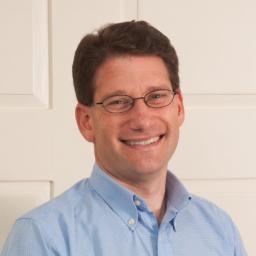One of the great strengths of Jewish day schools is their independence. Each day school has the autonomy to shape the educational experience of the students in their care to their unique needs, as well as to the priorities of the community in which these young people live and learn. Unlike public schools, which are bound to structure teaching and learning around fixed expectations, the professional educators in day schools have considerable freedom to conceive and execute a one-of-a-kind educational program. At the highest level, each day school can actualize the true purpose of schooling: meeting students where they are while enabling them to achieve excellence. There has been no greater demonstration of the power of this flexibility and ability to innovate than during the pandemic when, for the most part, day schools shifted quickly to online and hybrid models of instruction while public schools floundered.
Of course, this same asset of “self-rule” also brings with it some sharp drawbacks, for independence necessarily means a lack of centralization and the opportunity to benefit from being part of a broader accountability structure. A critical challenge facing day schools, then, is how to take advantage of their independence without losing sight of the value of adhering to external and well-tested standards.
What is true of day schools also holds for the independent organizations that provide professional development to the corps of educators who work in them. As with the day school field, these providers’ self-developed educational models—in this case, education for adults - are a distinct strength, for they capitalize on their flexibility to respond to the individual needs of teachers and the specific context in which they teach. Here, too, the pandemic revealed how this autonomy plays out, as providers adapted their models to accommodate the ever-changing needs of the educators with whom they work, especially by remaining sensitive to the additional burdens placed on teachers.
And like the day schools they partner with, these experts are typically not accountable to any overarching governing body but are operating in service only of the mutual goals of strengthening instructional practices and making curriculum more robust.
Within this context, 17 professional development providers came together in December 2019 to form the DEEP Consortium. The DEEP Consortium stands for the “Developing Embedded Expertise Programs” and operates as a professional learning community through which members share best practices, resources and ideas on how to implement effective interventions. Its aim is to encourage both member organizations and the day school field as a whole to pursue and realize professional development opportunities that optimize impact.
Standards for Professional Development
While the DEEP Consortium is hardly a central agency, it has, over the past months, come to understand its role in upholding certain standards of what constitutes high-quality professional development. These research-based practices include eight key characteristics:
- present instructional content
- involve active learning, including designing, experimenting, practicing and revising
- are collaborative (within a school's faculty and/or with teachers across schools)
- are rooted in proven models
- entail direct coaching
- build in deliberate reflection and actionable feedback
- take place over an extended duration
- focus on student outcomes
They uphold these broad principles while conveying instructional strategies that have immediate application in classrooms.
It is critical to note that launching the DEEP Consortium did not suddenly prompt each member to commit to intervention models and approaches to training and coaching that adhere to these principles. On the contrary, it was their long-standing implementation of high-quality professional development along these standards that led each DEEP member to join the Consortium in the first place.
Maintaining a Commitment to Excellence
In publicly and forthrightly asserting members’ shared commitment to these methods of supporting teachers in strengthening their practice, the DEEP Consortium hopes to communicate to day school educators two essential truths about education and the field of day schools. First, through this joint statement, we emphasize that professional development should not be taken lightly. If school leaders are serious about boosting the capacity of their staff to educate all students, they will need to invest in the kind of training and coaching that is job-embedded, content-rich, collaborative and focuses on student outcomes. DEEP members know that when teachers participate consistently in these kinds of more intensive professional development opportunities, they are much more likely to improve upon their instructional practice and, in turn, augment student learning.
While we might be tempted to state that the need for quality professional development exists even during the upheaval caused by the pandemic, the truth is that it is especially during this time that school leaders need to support teachers to engage in meaningful activity that promotes skill development and confidence-building. In an environment where it seems like everyone is running just to stand still, professional development can be a lifeline to let educators know that progress is possible.
The second rationale for why the DEEP Consortium asserts these eight practices as our North Star is to convey just how it is possible to maintain independence in how we deliver professional development and still hold fast to broader principles that help to ensure our interventions are of the highest quality. And if the experts who serve day schools can strike this balance between autonomy and common standards, between flexibility and structure, surely day schools themselves can as well.
Looking ahead, the DEEP Consortium will explore ways of evolving this collective commitment to implementing first-rate professional development into definitive initiatives that can support day schools in their own pursuit of educational excellence - a pursuit that takes unique approaches to achieving shared high expectations. We invite day school leaders and educators to engage in conversation with both individual members of DEEP and with the Consortium leadership in this effort, as we together strive toward our lofty ambition of making day schools the best that they can be.



